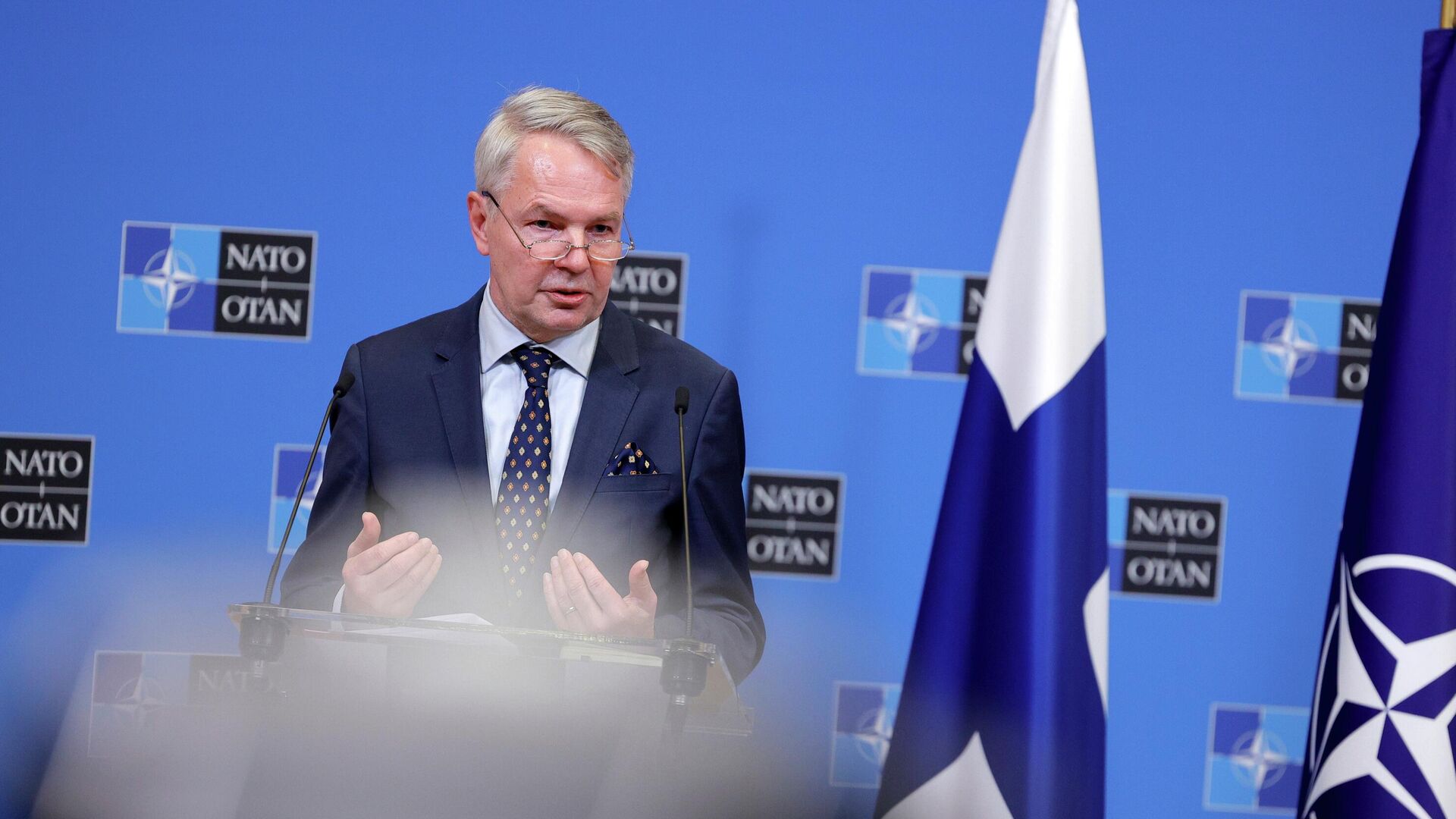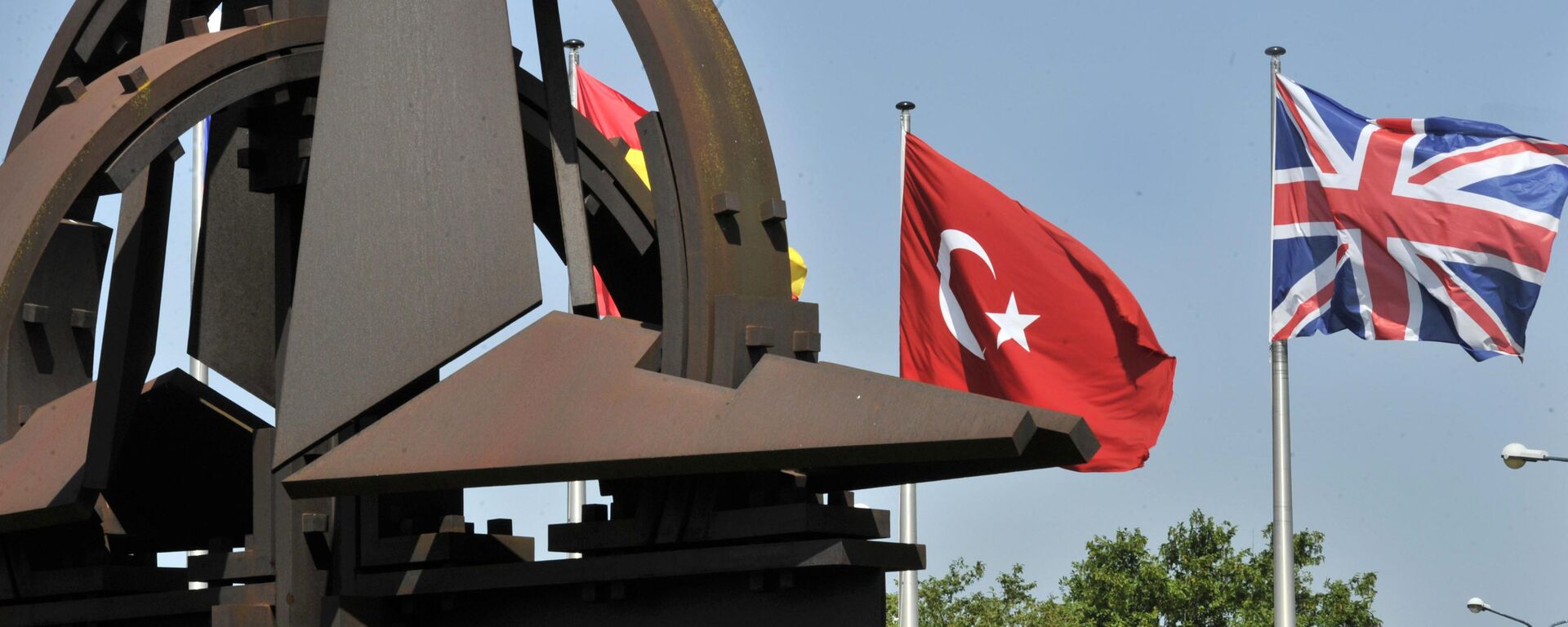Finland, Sweden Applications for NATO Membership Add to Regional Instability - US Activist
23:34 GMT 17.05.2022 (Updated: 16:49 GMT 08.01.2023)

© AP Photo / Olivier Matthys
Subscribe
WASHINGTON (Sputnik) - The decisions by the governments of Finland and Sweden to apply for membership in NATO subordinates them to the aggressive US-led military alliance that puts their peoples at risk and adds to regional instability, US peace activist and coordinator of the Odessa Solidarity Campaign Phil Wilayto told Sputnik.
Wilayto said that the decisions by the governments of Sweden and Finland to join NATO are a "huge step back for world peace and for European stability."
"Both, Sweden and Finland have been at least officially neutral for many decades - Finland since World War II and Sweden since long before that. Officially subordinating themselves to an aggressive US-led military alliance puts the people of both countries in danger and contributes to the overall political and military instability of the entire region," he said.
Earlier in the day, Swedish Prime Minister Magdalena Andersson said Sweden and Finland will jointly apply for NATO membership on Wednesday.
Wilayto said joining NATO will immediately raise the possibility of involving both countries in conflicts that they have nothing to do with, given that Article 5 of NATO's founding treaty stipulates an attack on any one member is considered to be an attack on all.
"Those who think of NATO only as protection for themselves would do well to remember that the only time Article 5 has ever been invoked was to come to the aid of the United States after the attacks of Sept. 11, 2001. So the question becomes, do you really want Washington telling you who your enemies are?" he said.
Wilayto pointed out that joining NATO is not inexpensive and the United States demands that all members devote at least 2 percent of their GDP to military spending.
"Finland already spends 2 percent of its GDP on its military (the 2021 estimate), which is up from 1.5 percent in 2020," he said. "But in Sweden’s case, this would mean an increase in military spending since its present spending is only 1.3 percent of its GDP. The result will be an increase in taxes or a reduction in social spending, or both."
Wilayto noted that that NATO was founded in 1949 by a dozen North American and Western European countries opposed to the Soviet Union and after the dissolution of the Soviet Union it has grown to include 30 countries stretching all the way to the borders of Russia.
"NATO claims to be a force for peace, but let’s look at its record: From 1993 to 1995, NATO imposed a naval blockade on the former Yugoslavia. In 1995, it carried out a bombing campaign against Bosnia," he said. "In 1999, it carried out a massive bombing campaign against Serbia, inflicting many civilian casualties."
Wilayto also said that NATO conducted an air campaign against Libya in 2011, "turning what was once the most prosperous country in Africa into a safe haven for extremists who are now destabilizing a large part of West Africa." In addition, NATO participated in the United Nations-led mission in Afghanistan.
"In all these military actions, NATO was essentially acting under the leadership and in the interests of the United States," Wilayto said. "NATO today is simply an extension of the US military where soldiers and taxpayers of other countries are forced to pay the cost of the United States pursuing its goal of global hegemony, or, as the Pentagon puts it, 'full spectrum dominance.'"
When asked whether Sweden and Finland joining NATO would increase stability in Europe, Wilayto underscored, "no, it would, in fact, do the exact opposite."
Wilayto explained that tensions between the United States and Russia are now at their highest level since the worst days of the Cold War and emphasized he believes the best-case scenario would be for the countries bordering Russia to adopt a stance of political and military neutrality, such as Finland had done for more than 75 years.
"This would create a kind of buffer zone and help reduce tensions," he said. "Instead, the US has pushed more and more border countries to join NATO. This is very dangerous and is rightly viewed by Russia as an existential threat."
Wilayto continued to say that Finland shares an 830-mile long border with Russia, and if it does join NATO, the land border that Russia shares with NATO member countries would roughly double.
"The case of Ukraine, with its more than 1,200-mile land border with Russia, is of course even more serious. And then there’s Georgia, which also now wants to join NATO," he said. "So you can see that, in practice, the United States and NATO are tightening their encirclement of Russia’s Western flank, which is inherently destabilizing."
"This steady NATO expansion is pitting Russia against an aggressive military alliance that every year spends more than ten times on its collective militaries than Russia spends on its own," he added.
Wilayto also pointed out that there is no doubt how the United States would react if Russia were building an anti-US military alliance with Canada, Mexico and the countries of Latin America and the Caribbean, and holding military exercises right up to the Rio Grande and off the coasts of Maine and Washington state.
"Hopefully, the people of Sweden and Finland will see the folly of their governments joining NATO and will speak out and prevent it. And hopefully the people here in the United States will become more aware of what Washington is doing in their name and against their best interests," he said.
US President Joe Biden will host his Finnish counterpart and the Swedish prime minister at the White House on May 19 for talks on the two nations' applications for NATO membership, White House spokesperson Karine Jean-Pierre said on Tuesday.
Finland and Sweden have been considering joining NATO since Russia launched its special military operation in Ukraine on February 24. Both countries announced their official decisions to abandon neutrality on Sunday.
NATO Secretary General Jens Stoltenberg said on Sunday that the alliance will warmly welcome Finland and Sweden and pledged to fast-track their membership applications. However, entry in the alliance must be done with an unanimous agreement of all members and Turkey has expressed opposition to Finland's and Sweden's joining NATO.


